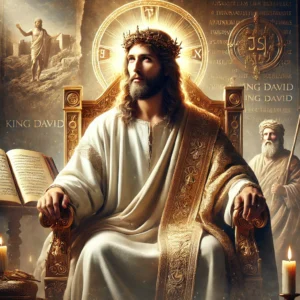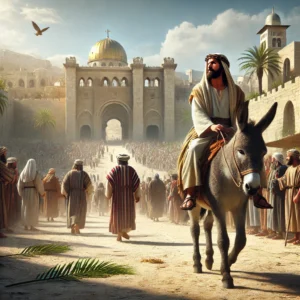
One of the central beliefs of Christianity is that Jesus Christ is the fulfillment of the Messianic prophecies found in the Old Testament. These prophecies, written centuries before Jesus’ birth, foretold the coming of a savior who would redeem humanity. Christians believe that Jesus fulfilled these predictions, affirming his identity as the promised Messiah. Let’s explore some of the key prophecies and how Jesus is seen as their fulfillment.
Born of a Virgin: Isaiah’s Prophecy

In the book of Isaiah 7:14, the prophet foretold that a virgin would conceive and give birth to a son named Immanuel, meaning “God with us.” Christians believe that this prophecy was fulfilled in the birth of Jesus, as recorded in the Gospels. The virgin birth, a central tenet of Christian belief, is seen as a miraculous sign that points to Jesus’ divine origin and unique role as the Messiah.
Born in Bethlehem: Micah’s Prophecy
The prophet Micah predicted the Messiah would be born in Bethlehem, a small town in Judah. In Micah 5:2, it is written, “But you, Bethlehem… out of you will come for me one who will be ruler over Israel.” Jesus’ birth in Bethlehem, as described in the Gospels of Matthew and Luke, is viewed as a direct fulfillment of this prophecy, confirming his Messianic role.
A Descendant of David: The Davidic Covenant

The Old Testament repeatedly emphasizes that the Messiah would come from the lineage of King David. In 2 Samuel 7:12-16, God makes a covenant with David, promising that his descendants will rule forever. The genealogies in the Gospels trace Jesus’ ancestry back to David, reinforcing the belief that he is the legitimate heir to the throne of Israel and the eternal king that the prophecy speaks of.
Suffering Servant: Isaiah’s Vision of the Messiah
One of the most striking and significant prophecies about the Messiah is found in Isaiah 53, often referred to as the Suffering Servant passage. It describes a figure who would be “despised and rejected,” “pierced for our transgressions,” and who would bear the sins of many. Christians see this passage as a direct reference to Jesus’ crucifixion, where he endured suffering and death for the sins of humanity. The parallels between Jesus’ life, death, and the descriptions in Isaiah are seen as compelling evidence of his fulfillment of this prophecy.
Riding into Jerusalem on a Donkey: Zechariah’s Prophecy

In Zechariah 9:9, the prophet foretold that the Messiah would enter Jerusalem riding on a donkey, symbolizing humility and peace. This prophecy is believed to be fulfilled on Palm Sunday, when Jesus triumphantly rode into Jerusalem on a donkey, as described in all four Gospels. This event marked the beginning of the final week leading to his crucifixion and is celebrated by Christians as a key moment in his mission as the Messiah.
The Betrayal for Thirty Pieces of Silver

Another prophecy comes from Zechariah 11:12-13, where it is foretold that the Messiah would be betrayed for thirty pieces of silver. According to the Gospels, Judas Iscariot betrayed Jesus for exactly this amount, fulfilling the prophecy. The money was later used to buy a potter’s field, further connecting the event to Zechariah’s prediction.
The Resurrection Foretold: Psalm 16

In Psalm 16:10, King David speaks of God’s Holy One not seeing decay, a verse interpreted as a prophecy about the Messiah’s resurrection. Christians believe that Jesus’ resurrection on the third day after his crucifixion is the ultimate fulfillment of this prophecy. His victory over death is viewed as confirmation of his divine identity and the fulfillment of God’s plan for salvation.
Conclusion
Jesus’ life, death, and resurrection are seen by Christians as the ultimate fulfillment of the Messianic prophecies in the Old Testament. From his birth in Bethlehem to his suffering and resurrection, these prophecies are believed to reveal his true identity as the promised Savior. For Christians, Jesus stands as the bridge between the Old and New Testaments, fulfilling God’s ancient promises and bringing hope and salvation to the world.



